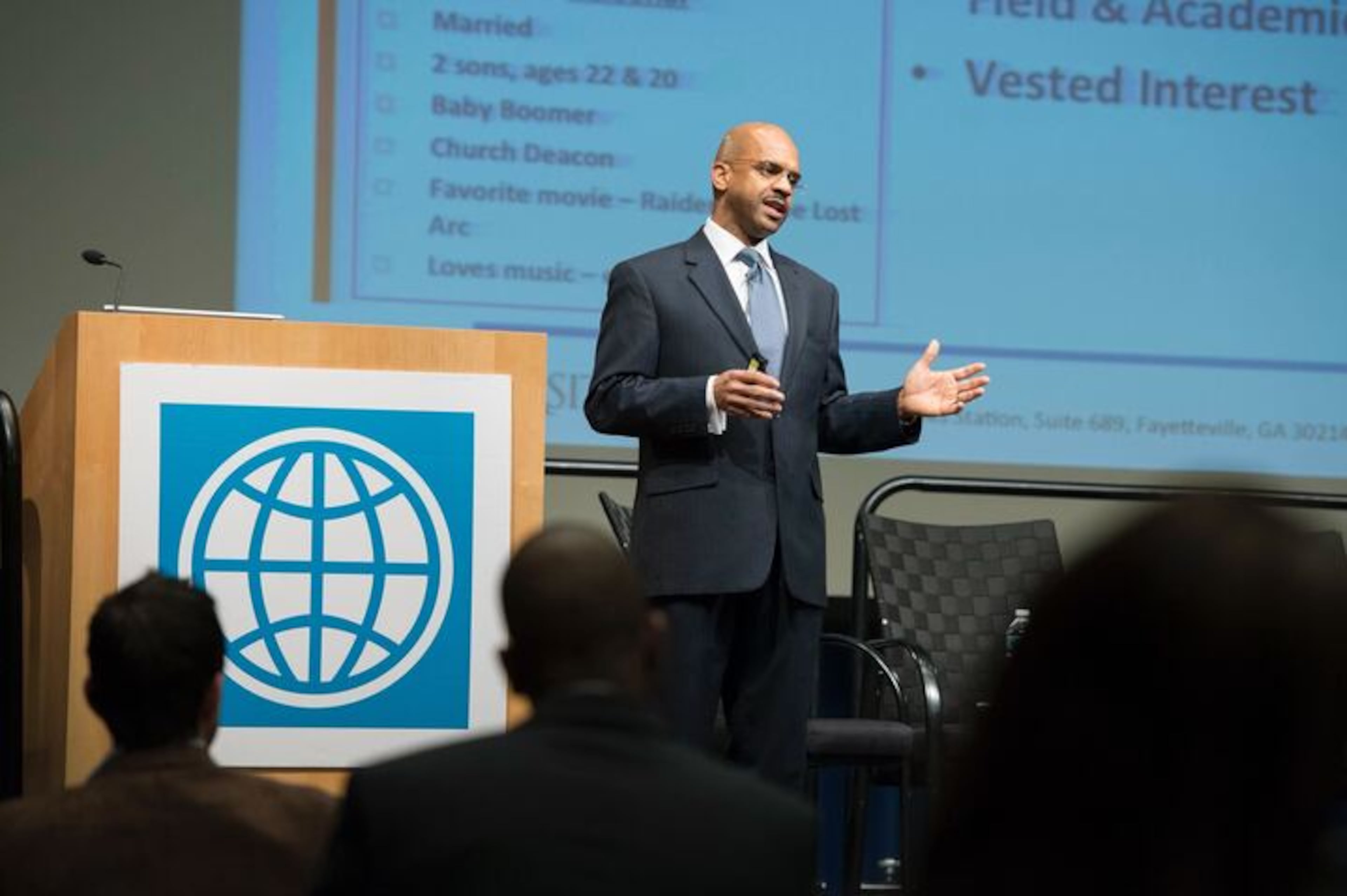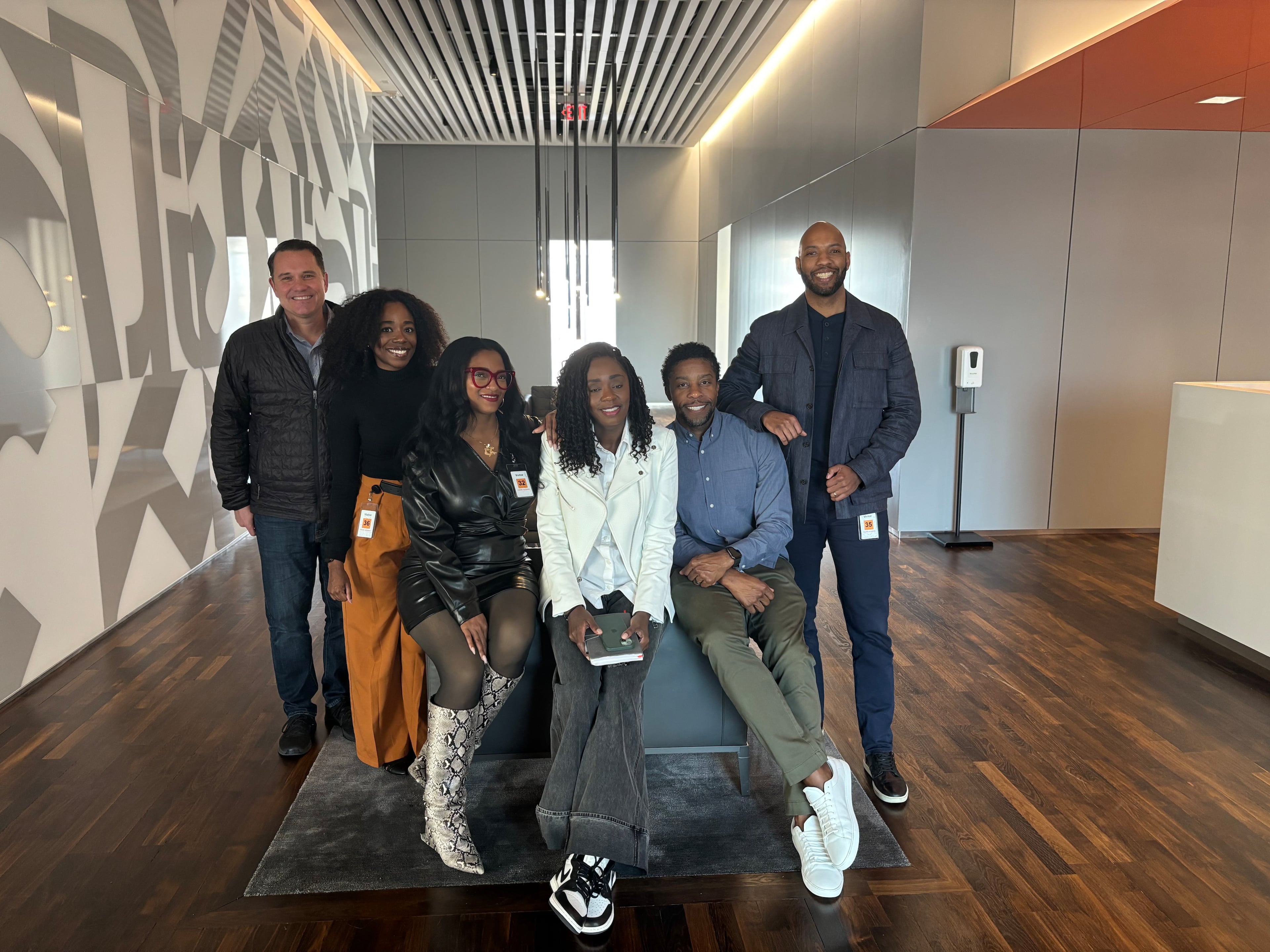As DEI support flounders, Goodie Nation helps Black entrepreneurs flourish

Innovation hub Goodie Nation has been shaping Atlanta’s entrepreneurial landscape for over a decade. Now, the nonprofit is pushing even harder to connect underrepresented business owners to industry resources in a political climate where diversity, equity and inclusion efforts have been reversed or abandoned.
Created in 2014, Goodie Nation works to help nonprofit entrepreneurs of color gain access to funding, technology, marketing and people with whom they can connect within their respective business realms.
“The startups that are not people of color (or) women have a much easier time raising more money,” said Goodie Nation founder and CEO Joey Womack.
Inspired by social justice themes aired by Atlanta rap group Goodie Mob, Goodie Nation grew into a collective, training ground and gateway for those entrepreneurs lacking resources and access. In an era where DEI has come under fire, Womack says the company’s mission is increasingly important.
He explained that marginalized communities have more difficulty networking within the entrepreneurial, higher education and tech spaces.
“When you’re connected to those folks, you are traditionally, what we call, ‘in-network.’ If you’re not connected to those folks, it’s much more difficult for you to get the access you need to get all the other stuff,” Womack said.
“We had a suite of events and programs to kind of pull it all together, almost like a state, like a republic. We called it a Goodie Nation.”
In 2024, Goodie Nation acquired professional incubator The A Pledge (TAP), a nonprofit aimed at boosting company profiles spearheaded by Black entrepreneurs.
The A Pledge works under Goodie Nation to assist business owners of color through a training and critique program.
After attending a racial awareness program as part of Leadership Atlanta in 2013 under Al Vivian, son of civil rights leader C.T. Vivian, TAP co-founder Jeff Hilimire said he came out of the program “inspired to fight for social justice.”
He explained that during his 15 years of experience in the marketing and advertising industry, he noticed that much of it was dominated by white men.
“I began talking to other agency leaders at that time, most of which looked like me, white men, and there just wasn’t a lot of interest,” Hilimire said.
Corporate consulting firm Basic Diversity, has worked with companies like Bank of America, Coca-Cola and World Bank. As the president and CEO, Vivian teaches participants how to think more empathetically and to approach racial issues through different lenses.
“The problem is we’re kind of taught not to have the conversations with the other about our stuff. If we don’t have that conversation, we’re never going to know what’s really going on,” Vivian explained. “I force people to see the world from the other groups’ perspective(s). And it’s done by asking a lot of questions that make you really, really look internally at who you are, what you think, and why you think it.”

Following the seminar, Hilimire came up with the idea for The A Pledge as a way for more Atlanta companies to connect with employees of color in order to match the city’s demographics.
However, there wasn’t much interest from employers until the demonstrations and protests during the summer of 2020 after the murder of George Floyd.
“I used that opportunity and grabbed nine other leaders in Atlanta to form The A Pledge,” Hilimire said. “The initial idea was to tackle this issue from many different angles, mostly by working with the agencies in Atlanta to be better about the hiring practices, to be better about building the right culture, to have a more diverse workforce — even reaching into schools and educating students.”
Hilimire noticed that interest in the project waned the farther removed the country became from 2020.
He reached out to Goodie Nation with an idea for it to be a home for The A Pledge. Together, the organizations work to bridge the professional racial gap.

“Rather than work with the majority of the agencies in Atlanta to try to help them be better about hiring diverse talent, we decided to focus on our agencies that were started by people of color to help them be successful,” Hilimire said. “So, it became more of a cohort to support them and give them a fighting chance.”
Despite the two organizations working together, recent DEI rollbacks prompted by the Trump administration have affected entrepreneurs of color receiving access to sources. Companies that previously worked with Goodie Nation have lessened their involvement.
“The new administration and the sentiment around their views, especially as it pertains to the DEI initiatives, have made all efforts like The A Pledge more difficult,” Hilimire said. “I certainly did not expect the vitriol that came with this new administration, but we knew that now is the time to get on top of it and try to rally people.”
Womack said companies he previously worked with that helped the entrepreneurs in his program have shied away in fear of losing their federal statuses as tax-exempt nonprofits.
“I don’t think it’s any surprise that attacks on DEI have affected corporations that sponsor us and our peers, (as well as) foundations that give grants to us,” he said. “I’ve never got as many bounce-back emails (from) partners and funders (as I’ve had) in the last six months.”
He predicted that with less concern for diversity, positions created to boost DEI will cease to exist, and people filling those roles could lose their jobs.
However, the silver lining to the shake-up losing those opportunities could lead to new professional avenues, helping others find success on their own terms.
“The current atmosphere has forced us to be innovative if we want to keep on achieving our mission,” he continued. “As things are tougher, we just got to move. But you know, honestly, people of color in this country, we’re used to being innovative.”
